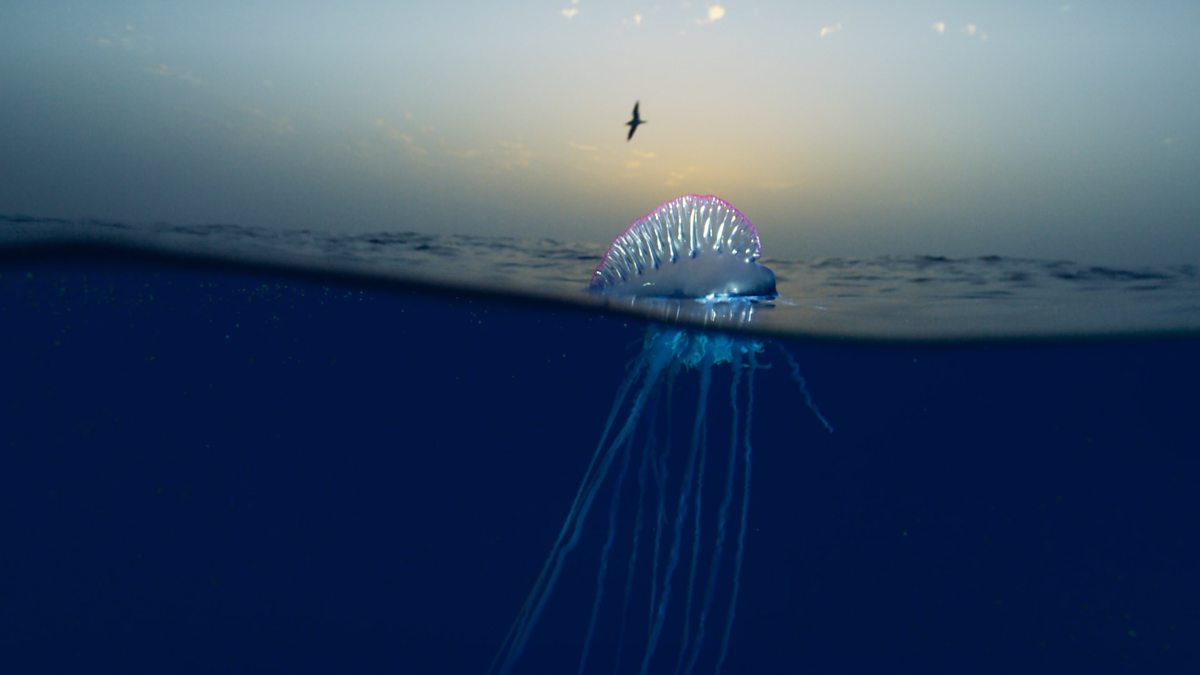
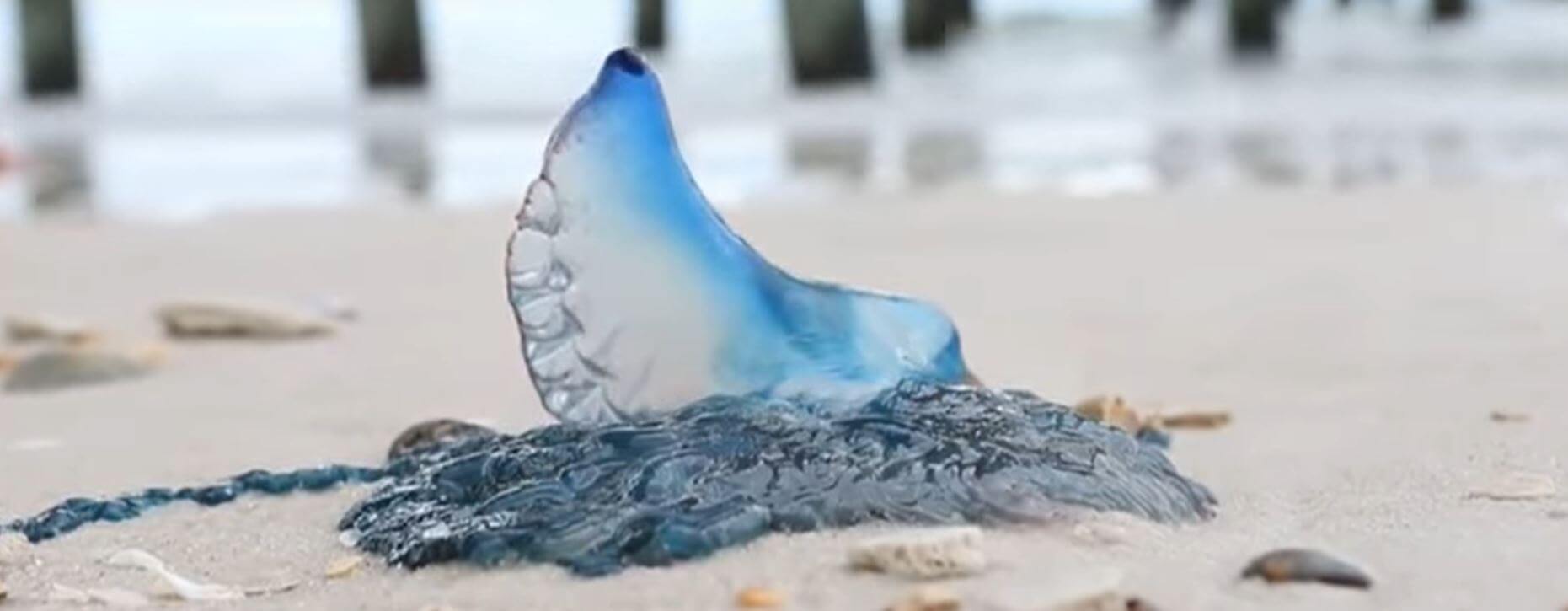
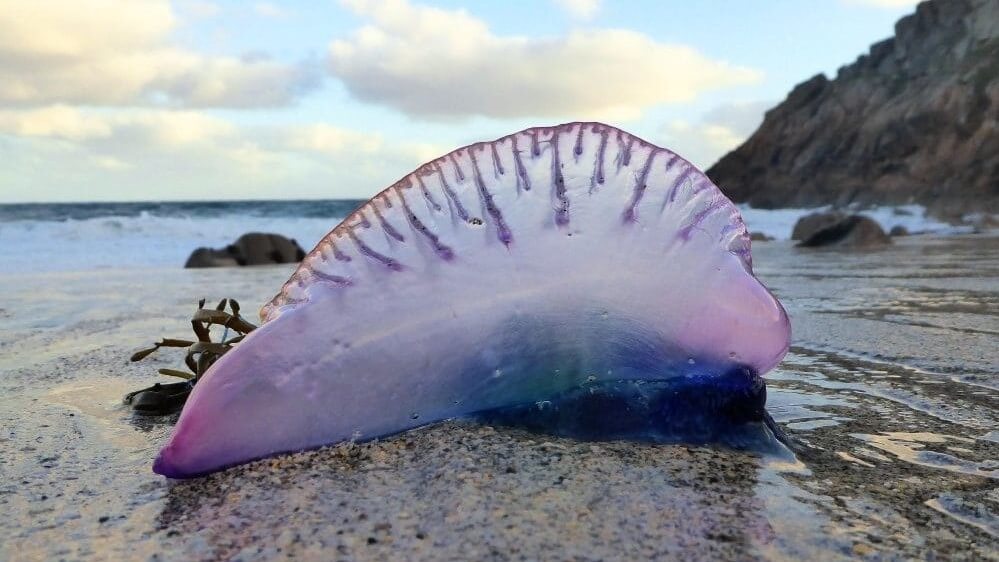

To contact Mark Leavitt about this story or photo release permission, send an email to:
mark@leavitt.net
It is a beautiful Carolina morning. All the years of hearing about Myrtle Beach, I am finally here and stepping into the ocean water. The beach is quiet; not to many people around. I can see the lifeguard has just arrived and is setting up for the day. I am floating on my back and taking it all in. A scene of the movie Jaws looms in my mind, then fades moments later.
Suddenly, I feel something is not right. I start to rise up from the water. A tremendous feeling of pain is shooting up and down my back. It felt like electrocution. At that very moment, I sensed my back was struck by a shark or sting ray. I checked both sides over my shoulder; no signs of blood. As I started to walk towards the beach, I can the feel the surf hitting my legs and lower back. The pain has intensified.
I called to the young lifeguard. He looks at my back with a strange look, and tells me I have huge welts across my upper back. "I have never seen anything like this. How do you feel he asks?". I told him, "My back is on fire and in a lot of pain". The young lifeguard blew a whistle for an older lifeguard to come over. He suspects a Portuguese man-of-war.
I stagger to the hotel lobby and tell the woman at the front desk I need help. My back is burning up with intense pain. She looks at my back with disbelief and asks me if I want an ambulance.
Yes, call 911.
This photo of Mark Leavitt was taken by treating ER medical doctor half hour later after contact with a portuguese man-of-war in the ocean water at Myrtle Beach, SC. Vinegar packs was first line of treatment to neutralize venom. The white powder is baking soda that paramedics used during ambulance transport.
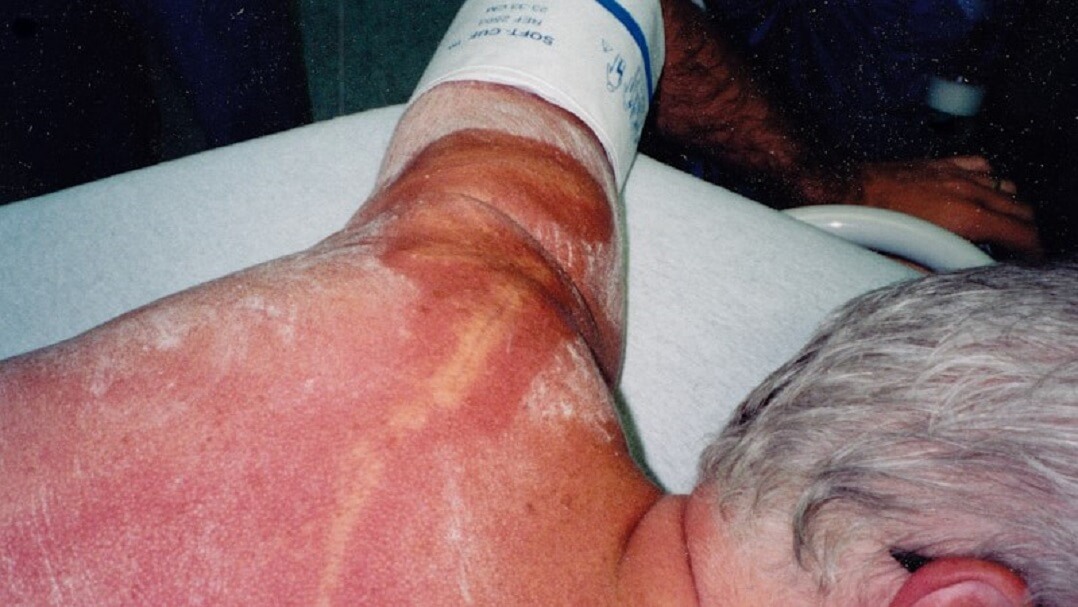
Treatments for portuguese man-of-war stings consisted of the following intravenously: morphine (pain), cortisone (tissue) and antihistamine (allergy). The reaction to venom caused my chest to extremely tighten during ambulance transport.
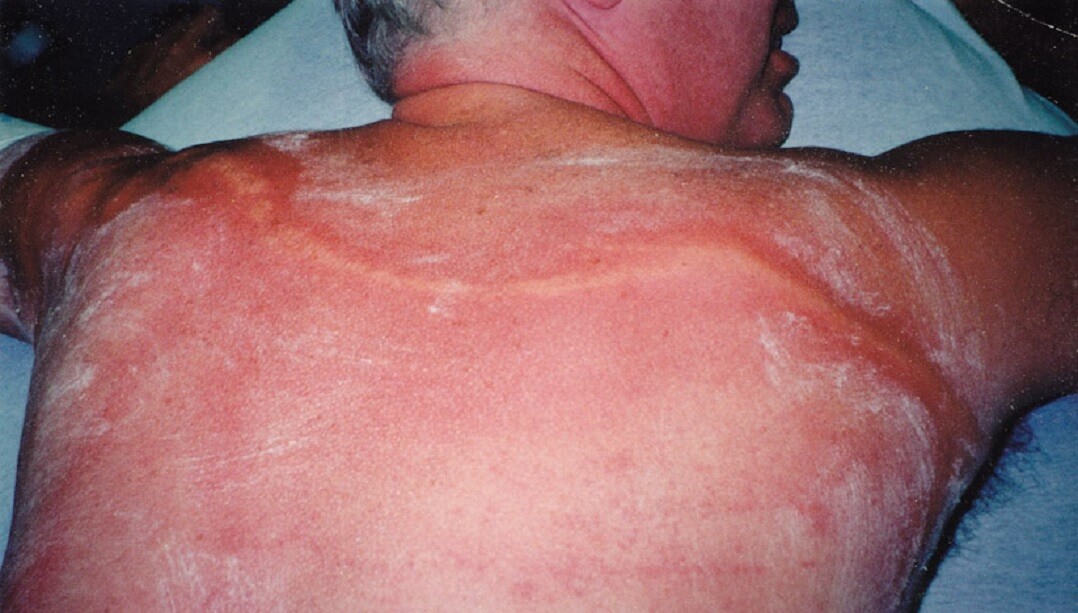
At the hotel room patio of the Breakers Beach Resort. Follow-up care consisted of warm bath soaks and oral/topical medication(s) for pain, swelling and bacterial infection.
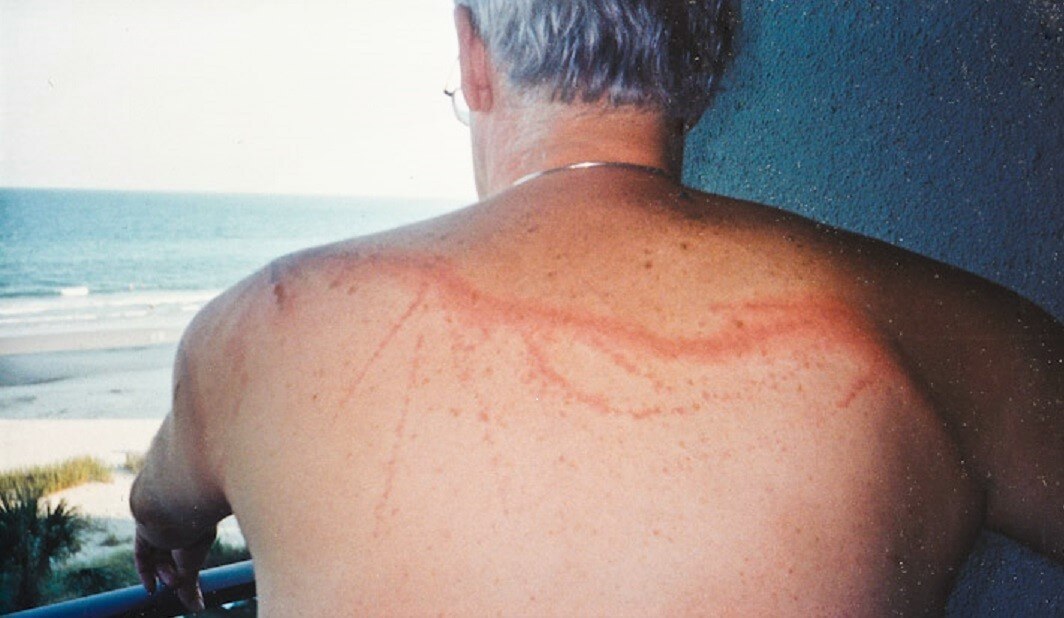
We measured the length of the tentacle on my back which ranged up to 38 inches. Tentacles of a portuguese man-of-war can reach up to 30 to 150 FEET !
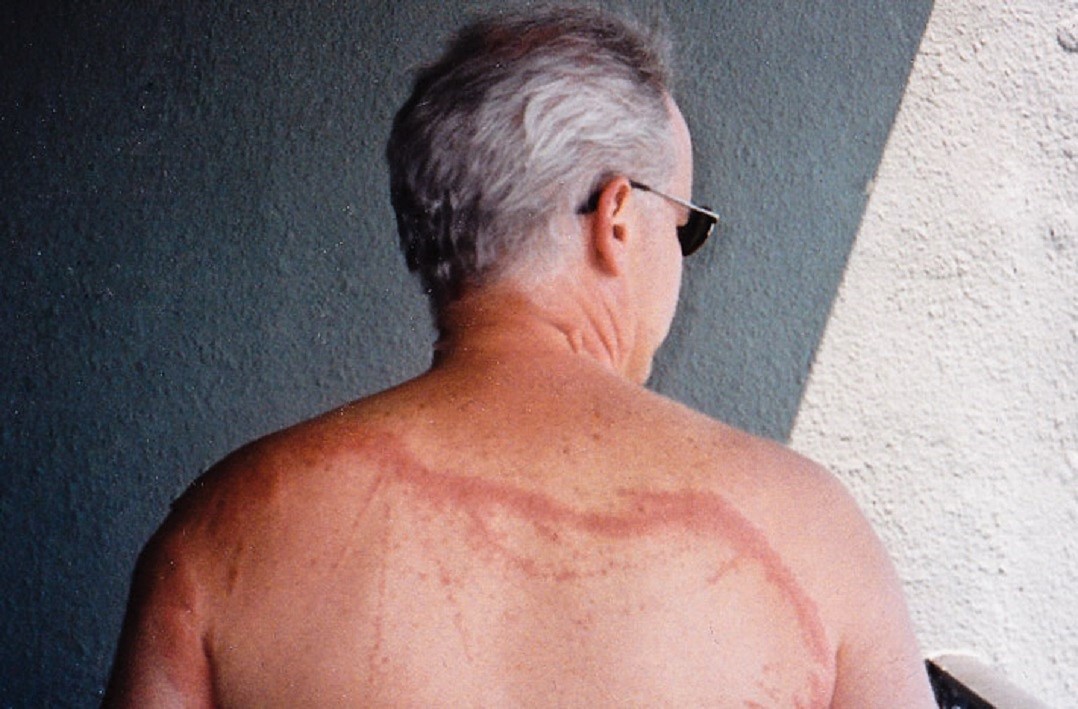
My left upper arm was very swollen and in a lot of pain. The tentacles contain stinging nematocysts (microscopic capsules) that deliver venom in small micro-darts. One of the biggest dangers is having a servere allergic reaction to the venom.
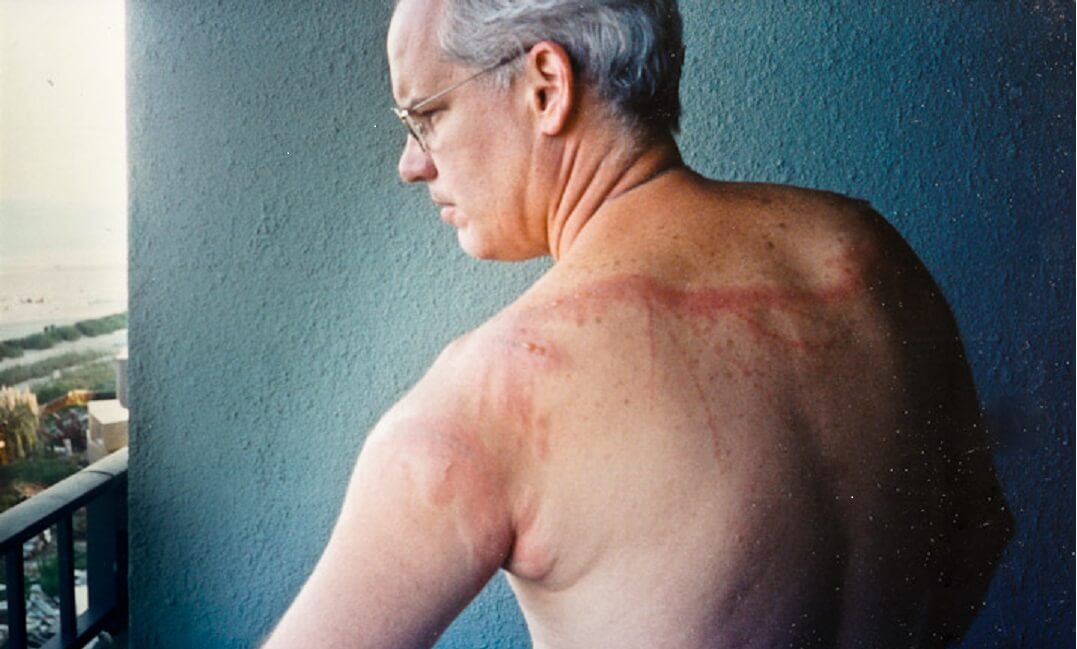
From the left upper arm in the previous photo to the right upper arm in this photo, you can see how long the tentacles of a portuguese man-of-war can be and the danger if your far out in the water.
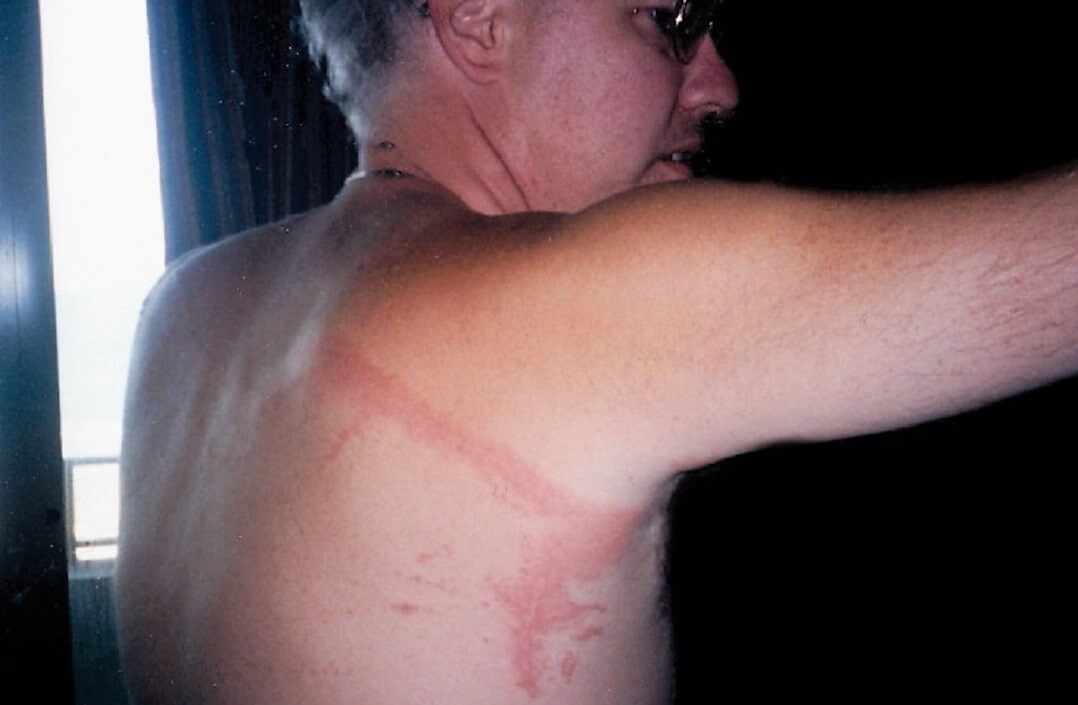
We pushed on with our southern tour trip and seven days later were in Savannagh, GA. My back is healing nicely, but still uncomfortable.
Final Prognosis: pain and soreness alleviated in about 3 weeks. However, into the second month, periods of sharp pain would shoot down left and right arm. Upper middle back experienced similar sensations. This lasted for about 4-6 weeks.
Full recovery was made in about 3-4 months. Minor scaring and skin discoloration in left upper arm and shoulder.
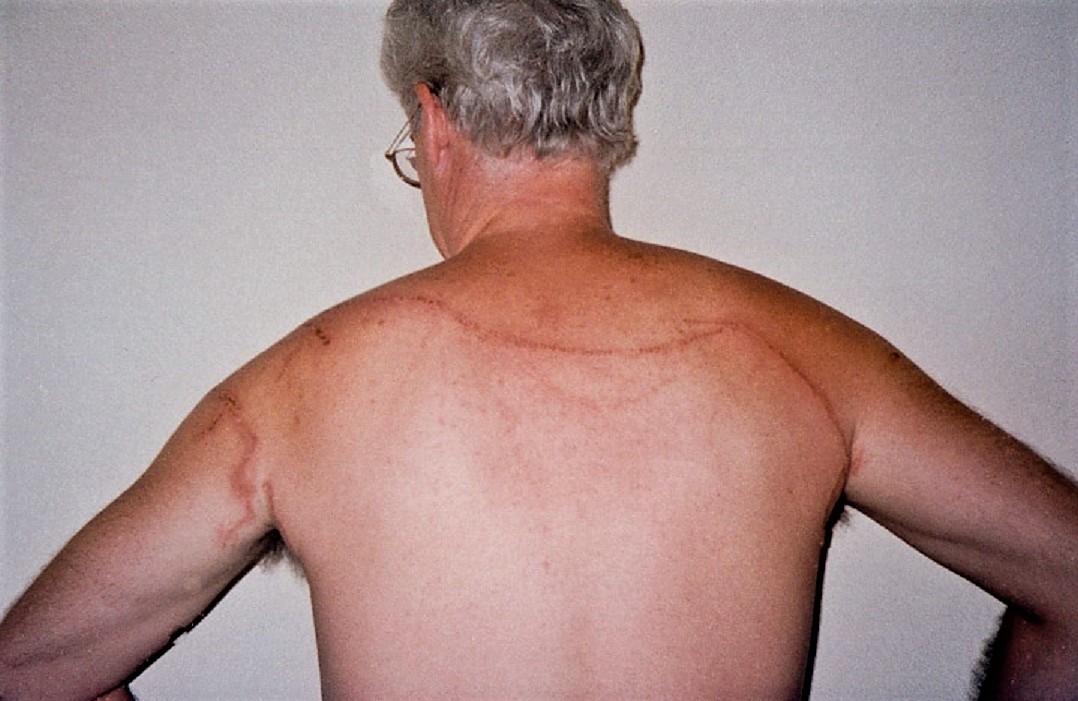
We almost turned back on our southern tour trip; but decided to push on with pain radiating down my arms and shoulders. We continued to our next destination; Charleston, SC. I ended up calling the Charleston Post & Courier and they were interested in the story. It was important for me because of public awareness for beachgoers, since you rarely ever see warnings posted in beach resorts for portuguese man-of-war. I was contacted by our local newspaper in CT when we
got home too.
Here are the two newspaper stories: